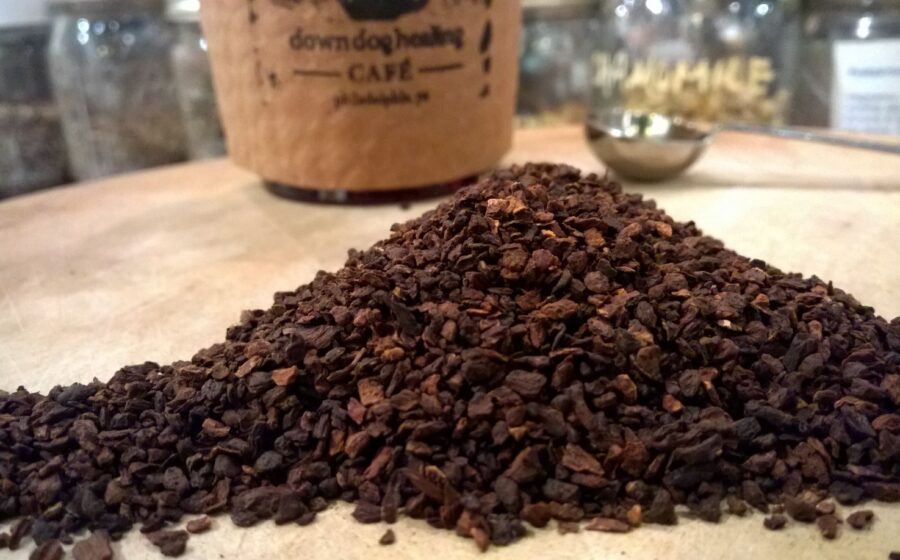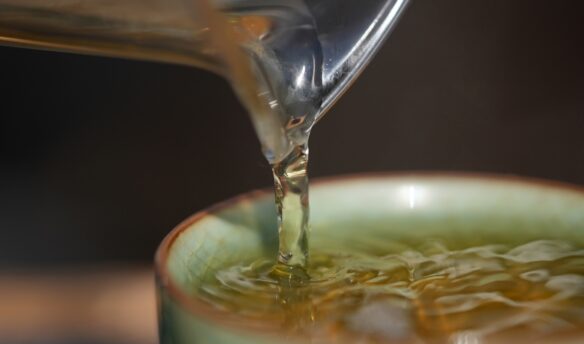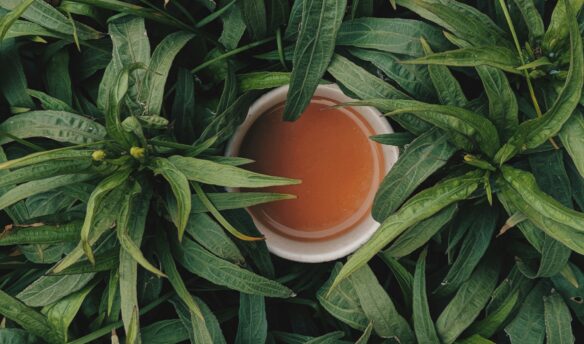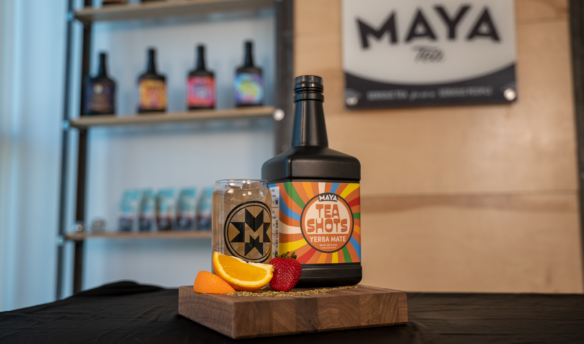[I]n our humble, ayurvedic Down Dog Healing Café in Philadelphia, chicory root tea has organically found it’s way into the hearts of our customers. We have grown an almost romantic appreciation for this little roasted root, which finds equal harmony in both coffee and tea. Since having delved deeper into the historical uses of chicory, I am sensing a revival of its royal roots, and of coffee and tea drinkers’ attraction to this woody tisane.
“What is Chicory?” we are often asked, as customers peer inquisitively over our counter. Branded as a coffee alternative, chicory is a root that is roasted and steeped as a tea. Chicory has the same bitterness and boldness of coffee, with hints of tea on the end, and an herbaceous personality.
In America, chicory history brings us to New Orleans, where dark roasted coffee with chicory added is traditionally served café au lait style, alongside beignets. This pairing is said to have evolved from the French influence around 1840. With coffee importation to the New Orleans port blocked during the Civil War, and owing to tough economic times, chicory became a much more affordable and accessible option. The flavor profile stuck, cemented to New Orleans culture. Today chicory coffee is still drunk there, its most famous version poured at Café du Monde in the French Quarter. The tradition lives on elsewhere, too, with popular roasters like Blue Bottle serving New Orleans-style chicory coffee, which is milky, toasty, and sweet.
Chicory has been documented for its medicinal uses dating back 5,000 years, to the days when it was grown by the Nile in Egypt.
In the present day tea scene, chicory is often blended with herbal ingredients such as dandelion root, with its similar roasted profile and detoxifying effects, or sweet and spicy herbs like cinnamon and hibiscus, which counterbalance chicory’s slight astringency. Roasted herbs like dandelion and chicory for some hit a sweet spot of satisfaction akin to coffee, creating solace in the battle to withdraw from caffeine. Mountain Rose Herbs has a lovely, earthy herbal coffee blend that includes roasted carob and maca in addition to roasted dandelion and chicory roots.
Chicory has been documented for its medicinal uses dating back 5,000 years, to the days when it was grown by the Nile in Egypt. Egyptians used chicory to cleanse the liver, ancient Romans used chicory to cleanse the blood, and the great sages of western herbal medicine have used chicory throughout time for healing. Queen Elizabeth I of England drank chicory broth and chicory juice was used in a headache tonic according to Pliny the Elder (CE 23-79).
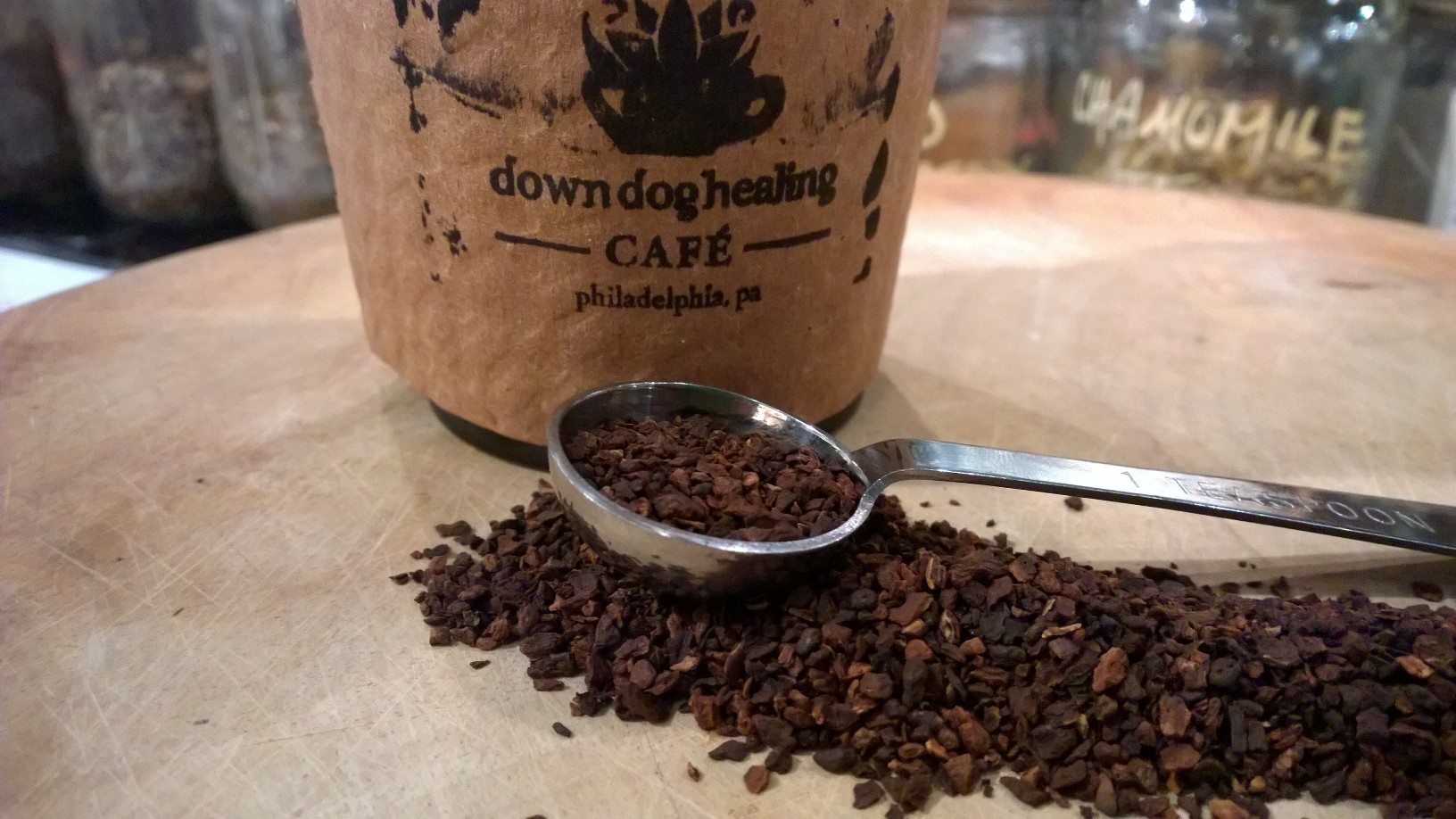
In the current Western medical context chicory has prebiotic qualities, and is said to “fertilize” the flora in the intestines so that probiotics may flourish at a healthy level. Chicory is full of antioxidants, breaks down fats during digestion and in turn, regulates healthy liver function.
At Down Dog we approach chicory from an ayurvedic perspective. Ayurvedically speaking, chicory’s taste and aid to digestion define its health benefits. Chicory holds a bitter taste. In ayurvedic teachings, “bitter” is beneficial for reducing water retention, reducing weight, cooling skin rashes, fever, burning, and nausea.
I’ve asked several customers to define why they “love” chicory. It seemed hard for them to put into words, just as true love can often leave us speechless. “It just makes us feel good!” they respond, grinning.
If you’d like to try out chicory yourself, there are plenty of ways to do so. Steep chicory as you would a tea, use the French press method, brew it as you would drip coffee, or go for the pour-over. Chicory steeps very quickly so we suggest anywhere from thirty seconds to five minutes, depending on your preferred strength. Enjoy a New Orleans style au lait with steamed cow’s milk or try almond milk; since chicory has a lighter body than coffee, it blends much better with nut milks. Iced chicory is just as delightful as the hot version. And due to the caramelization that occurs when the root is roasted, chicory makes for an excellent pairing with a Fair Trade cacao, a bit of raw sugar, and cream.
—Kei Kurimoto owns Down Dog Healing Café, a Philadelphia wellness cafe specializing in ayurvedic food and drink.



